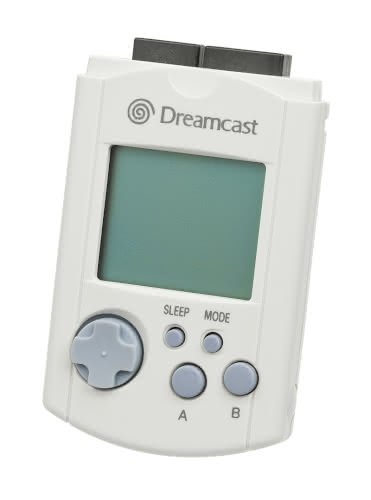The Sega Dreamcast, which was both the first console of the sixth generation and the last console that Sega ever produced, launched in North America on September 9, 1999. I have published a few articles about the ultimately short-lived Dreamcast, including posts about its unique controller and Sega of Japan’s marketing campaign for the console. Although the Dreamcast’s life official life cycle ended more than two decades ago, indie developers have continued to explore the console and produce unofficial games for it. Automation West reported on a new Dreamcast product that is perhaps more ambitious than an indie game: an indie memory card. Quoting from the article:
Dreamweare Enterprises has launched a crowdfunding campaign to create a next-generation version of the Dreamcast VMU memory card called the VM2. The VM2 looks the same as the original VMU but comes equipped with upgrades like a higher resolution LCD screen and a Micro-USB port.
Interesting. The VMU was one of the more unique features of the Dreamcast. It is a memory card with a screen, d-pad, and four buttons.

Some games, most notably Sonic Adventure and sports games, made creative use of the VMU. I very much liked the VMU at the time and I thought it would inspire similar products in future consoles. However, to the extent that future consoles had memory cards, they were usually of the more traditional, boring variety (imagine what Nintendo could have done with Animal Crossing and a VMU-style memory card, much less Pokémon Colosseum). The VMU remains a somewhat unique artifact in game console history. If you are interested in the VM2 (clever name, by the way), you can learn more about it on the project’s Indiegogo page. However, as Automation West noted, there may be some copyright issues to iron out before it is formally released.